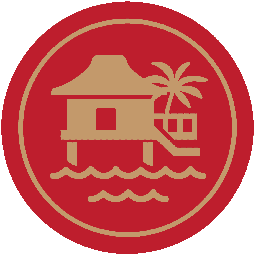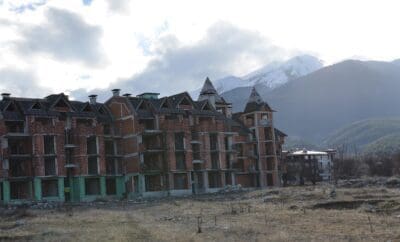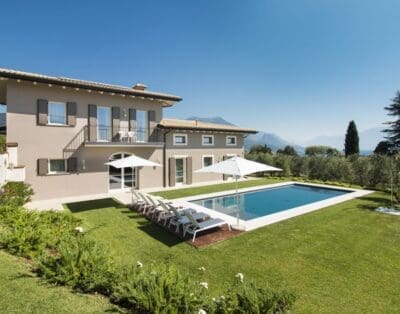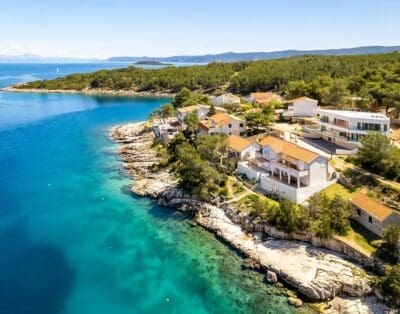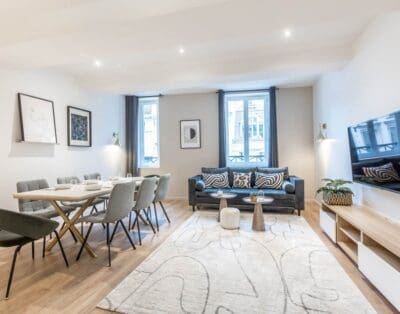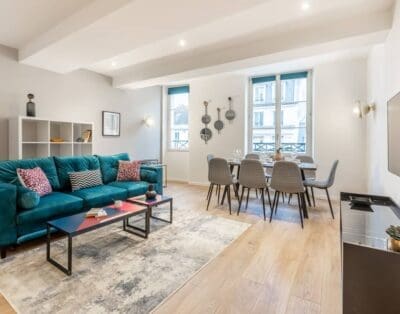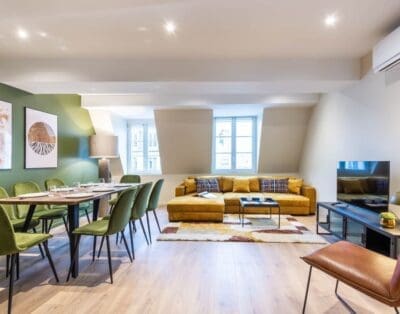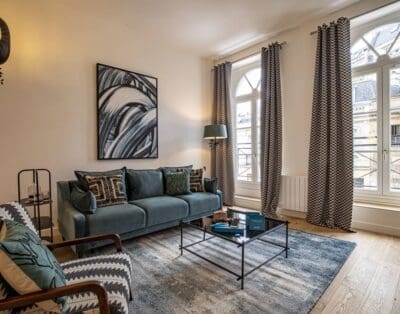Meeting the Bulgarian Gypsy Community
It was a bitterly cold morning in the southern Bulgarian ski town of Bansko and the instant coffee on the balcony had chilled at an alarming pace. In the distance the vague plumes of steam could be seen coming from the figure of a muscular brown horse pulling a cart. On top of the cart was a man with a dark complexion holding the reigns loosely and bobbing up and down as the cart moved forward. The snow was thick with a slight crust on the surface as it had rained a little the previous night. The mysterious figure was coming closer at a slow pace with the horse trudging through the snow and navigating its way round discarded building material that littered the fields around the town.
It looked like a scene from Dr Zhivago. A scene from a time long gone. However, this would become a regular scene and most mornings at around 7am I would watch this man come to town on his horse and cart. He was a member of Bulgaria’s largest ethnic minority the Roma. Every day he would come to town and rummage through the rubbish for recyclables and collect food which had been discarded by the local restaurants from the previous evening. I have always been mesmerised by the Roma people and wanted understand what life is like for them in Bulgaria today. The stories you hear in the Balkans about the gypsy community can range wildly in drama and perhaps the reality of the situation. Some people said they stole from shops and individuals. Some said they live a traditional rural lifestyle on the outskirts of Bulgarian society only occasionally being seen here or there.
The most elaborate story I had heard was that in the dead of night gypsy men would sneak into a farmer’s field and illegally milk the cows before the sun had risen. The story was simple, three men would jump a fence, two would steady the cow by pushing against the animal on either side and the third would perform the milking process. The milk would then be taken by bucket carefully back to the men’s houses separated into bottles, then sold to whoever. The idea of night time cow pirates was an interesting image but somehow seemed a little farfetched. In any case this elderly man on his horse and cart did not seem the type to be pilfering milk under a full moon.
His skin was weathered and winkled and his body frail and gaunt. He was an elderly man, no taller than 5.5 foot and had sparse thin hair that stuck out from under his hat. His clothes were well worn but his footwear looked fantastic. His boots were well fitted, tough, waterproof and the fur trim kept his ankles nice and warm in the Bulgarian winter. The horse cart looked a sturdy piece of equipment with polished, well worn bolts attaching the makeshift wheels to the stern. The cart was constructed out of dark wood and on either side had raised wooden panels.
I couldn’t help my fascination and every day I began to speak to the man little by little. I would see him coming in the distance and I would run down the stairs and outside to the front of the building. He would come over a mound and round the corner and find me as if by coincidence standing near his path. Some people say the Roma gypsy community don’t speak Bulgarian and definitely never English. The latter was true but as for the former he understood. My Bulgarian was basic but being able to say ‘I want this’, ‘do you want’, ‘I like’, ‘I don’t like’ and so on was helpful. Greetings, niceties, thank you’s and small bits of general chit chat helped me to build a rapport with the man. Learning another language is incredibly difficult however if you have the basics, are prepared to give it a go regardless of how foolish you feel, carry a phase book and dictionary you have the potential to speak on a number of subjects.
And so it came to be that when the man came to town he would pause on the side of the road and together we would have a cigarette, talk and I would pat the horse. The conversation was always slow and long thought out but we understood each other on a basic level. He had four children and a wife and his name was Andrei or as I came to know him Mr Andrei. Together they lived in the distance from the direction where he emerged most mornings.
One morning, during our frequent sun rise ritual I asked to take his photograph and he happily obliged. I was spending a couple of months in Bulgaria, mostly staying in the ski town but also travelling around and occasionally going over to neighbouring Macedonia. After around four weeks of contact I decided to ask the man if I could see where he lived. The Bulgarian word for home is ‘U doma’ (У дома) and after some verbal fumbling it was agreed. The next day in the afternoon he would meet me in the same place and together we would go to his home for some tea.
Of course I was apprehensive and nervous, mostly because of my incomplete Bulgarian language skills but it was obvious there was nothing to worry about. He appeared around 2pm on a Tuesday afternoon and I clambered onto the cart taking my seat just behind him. After a brief conversation we got off the cart and began to chop some firewood from the dead trees nearby. Technically it is illegal to chop firewood without a licence, however few would care. The tree was long dead and the snow had melted allowing a large part of the tree to dry in the winter air. Bansko is surrounded by unfinished hotels scattered here and there. When Bulgaria joined the European Union investment money flooded in to help improve the roads and infrastructure around the country. Some saw the acceptance into the EU as an imminent sign that tourism would increase, hence the rapid investment in the winter sports hub of Bankso. Unfortunately for a number of reasons the second lift on the other side of the mountain didn’t open and the flood of tourists never really materialised. The unfinished hotels remain abandoned, unable to be continued with the investors’ money committed but lacking any potential buyer, they now sit dark and grey as if memories of an unfulfilled dream.
He flicked the reigns and tugged gently to the left and the horse began to slowly move, struggling slightly with the heavy load. Across the field and into the fields beyond the view of skeleton hotels could be seen way off in the distance. Soon we were making our way towards a wooded area near the base of the mountains. We passed at least 4 kilometres down the narrow snow covered path with trees either side. The wheels and the horses’ hooves were making deep tracks as we went and occasionally my head would bump into a low hanging branch, sending a light dusting of snow over my face and Mr Andrei’s head.
After around 30 minutes we arrived at a large clearing near the demarcation of the Pirin National Park with the mountains towering above us in the distance. There were around a dozen homes of various sizes. Some were two roomed buildings, some three or four rooms and others that looked like small farm buildings. The construction was a ramshackle affair of different pieces of wood, corrugated iron but the majority had terracotta coloured tiles placed atop of one another to form a water proof roof. The snow was beginning to solidify on the top layer and icicles were protruding from every nock and cranny on the buildings. We passed through the small hamlet and inquisitive faces peeked through frosted windows as we passed. Some of the children were playing in the snow and upon seeing the cart arriving ran up to us to greet Mr Andrei shouting enthusiastic greetings and he waved greetings to them in return. A group of teenage boys sheltering under a balcony of some two story barn dipped their heads to say hello and only momentarily glanced our way.
On the outskirts of this hamlet we pulled into a small house with smoke coming from the chimney. The building was a three roomed house with one large kitchen and living room with two adjoining bedrooms. Mr Andrei motioned to get off the cart and led the horse to some sort of a sheltered garage where a trough sat at the end filled partially with grain. He opened the door and beckoned me inside. The living room/kitchen was huge and the heat was sweltering. The beautiful smell of an open fire and herbs filled the house. Bulgarian styled ornate carpets covered every available floor space and the door to the rear of the room had a small window which showed the back of the property. At the back of the property there were at least three sheltered farm buildings, one with chickens, one for wood and the other I never saw inside.
Mrs Andrei was a stocky, stern faced woman, obviously a beautiful woman in her time. As we sat down around a small table Mr Andrei called to his wife to bring the tea. The clink of pots and pans could be heard from the kitchen across the room and within minutes fresh steaming tea was served. The conversation began to flow aided by the movement of hands and show of fingers to indicate numbers. I had practised my Bulgarian and the questions I would ask by spelling them out phonetically so I could produce them almost by memory.
The man was in his 60’s and his wife in her 50’s. They had four children, three boys and one girl. The daughter was now married and living in a different part of Bulgaria. One of the sons died early on in childhood and the other two lived in the same hamlet, each married men with their own families. The two sons still worked with their dad on their plot of land and helped with the upkeep of the animals. The family lived a traditional rural lifestyle and by Bulgarian gypsy standards were well off. They had half a dozen cows, a strong horse, two dozen chickens and four goats plus the land they farmed in the summer was large enough to yield produce for the family with excess to sell.
In the summer they would work the land and raise the livestock and in the winter they would live on what they saved from business throughout the summer. Nature in Bulgaria offers plenty of natural food and on the ride down Mr Andrei had pointed out a couple of different trees which produced edible berries or nuts. Mrs Andrei joined us in the front room and began to speak about the government. She was unhappy with not having financial help from the authorities. I had heard similar gripes before and is was of little surprise to hear it from a member of the Roma community.
The Roma community suffer from discrimination in every country in the Balkans and perhaps the world. They speak a language different depending what part of the world they are from but they often have a language separate to the country they reside in. Between me and Mr Andrei we spoke a drawn out broken Bulgarian with a dash of English on my part when struggling to find the correct words. However, when Mr Andrei spoke with his wife it was in a dialect or language I had never heard before. The words were difficult to separate and when spoken fluently they seemed to merge in an impossible mishmash of sounds and very tonal dependant. There was no electricity in the house and as the sun was beginning to dip below the mountains Mrs Andrei began to fetch the lanterns. The room was illuminated by candle light and the glow of the fire filled the room with a warmth and a constant source of flickering light. As the time went by we sat in front of the fire and ate fried eggs with thick slabs of crusty bread while talking about everything from the weather to the health of the horse. Mrs Andrei had produced a bottle of rakia from one of the other rooms and poured us all several long drinks. On a frosty Bulgarian winters night the rakia warms the body perfectly.
The time was getting on and both Mr Andrei and I were drained from the cold journey and beginning to feel the effect of the rakia. I decided to take my leave and with the distance only being a few kilometres away I decided to walk. Mr Andrei offered to take me by cart and made the sound of a wolf to indicate that it wasn’t so safe to get lost in the woods. I was confident enough to walk it, they had been so kind as to invite me into their home and I didn’t want to trouble them further. I said my good byes and with a firm hand shake Mr Andrei said goodbye.
As soon as I left the house the bitterness of the cold struck my bones and sent a shiver down my spine, perhaps I was a little silly to think walking was a good idea. It was too late now to turn back but at least our cart tracks would lead me back home. Luckily it wasn’t snowing yet so the tracks were visible, the snow offering some sort of light on the walk. The hamlet was eerily quite, not a dog barking or anything. I came to the edge of the hamlet and began to walk the wooded path through the snow being careful to stick to the track marks. It was only about 8pm and the sun had gone, everything that wasn’t covered in snow was black. About half way down the track I heard the sound or at least my tired, cold mind told me I heard a wolf calling in the distance.
A slight panic began to envelope me and I picked up the pace, briskly kicking the snows crust as I walked down the path. What a way to go I thought, eaten by hairy wolves in the woods and covered in a light snow till Mr Andrei found my frozen body the next morning. Then finally in the distance the end was in sight. The woods cleared and the open fields of snow and skeleton hotels presented themselves. Within twenty minutes I was home and had the heating up full. I had arranged to meet Mr Andrei in the next few days and weeks but we only crossed paths one more. His wife had become ill and so he had to take care of her. For the Roma community it is difficult to get health care from the state partly because of the money, distance to travel and in some cases discrimination.
The Roma community must be one of the most misunderstood minorities in the world and still today they suffer discrimination and prejudice almost everywhere they live. Often on a winters night if snow is falling I think back to Mr and Mrs Andrei and the kindness they showed me, they gave me the opportunity to have a brief glimpse into a society so different from my own, that opportunity may not come again.
Edward Crawford
